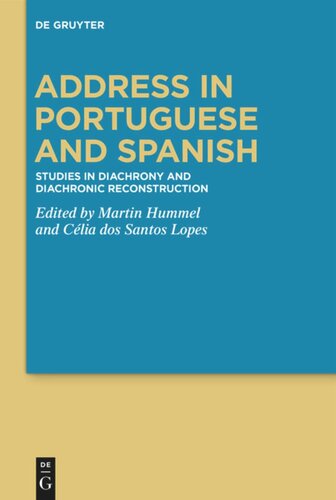

Most ebook files are in PDF format, so you can easily read them using various software such as Foxit Reader or directly on the Google Chrome browser.
Some ebook files are released by publishers in other formats such as .awz, .mobi, .epub, .fb2, etc. You may need to install specific software to read these formats on mobile/PC, such as Calibre.
Please read the tutorial at this link: https://ebookbell.com/faq
We offer FREE conversion to the popular formats you request; however, this may take some time. Therefore, right after payment, please email us, and we will try to provide the service as quickly as possible.
For some exceptional file formats or broken links (if any), please refrain from opening any disputes. Instead, email us first, and we will try to assist within a maximum of 6 hours.
EbookBell Team

4.0
76 reviewsOpen Access
The volume provides the first systematic comparative approach to the history of forms of address in Portuguese and Spanish, in their European and American varieties. Both languages share a common history—e.g., the personal union of Philipp II of Spain and Philipp I of Portugal; the parallel colonization of the Americas by Portugal and Spain; the long-term transformation from a feudal to a democratic system—in which crucial moments in the diachrony of address took place. To give one example, empirical data show that the puzzling late spread of Sp. usted ‘you (formal, polite)’ and Pt. você ‘you’ across America can be explained for both languages by the role of the political and military colonial administration. To explore these new insights, the volume relies on an innovative methodology, as it links traditional downstream diachrony with upstream diachronic reconstruction based on synchronic variation. Including theoretical reflections as well as fine-grained empirical studies, it brings together the most relevant authors in the field.